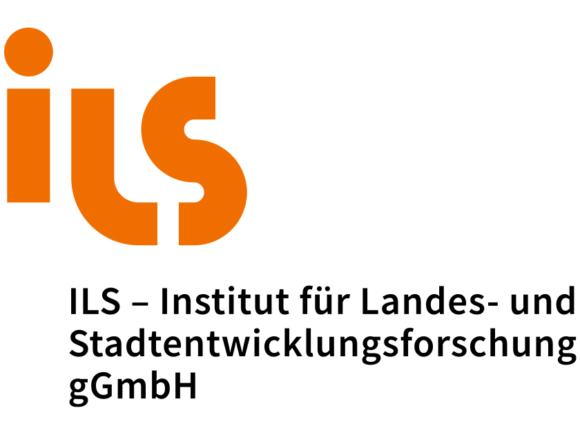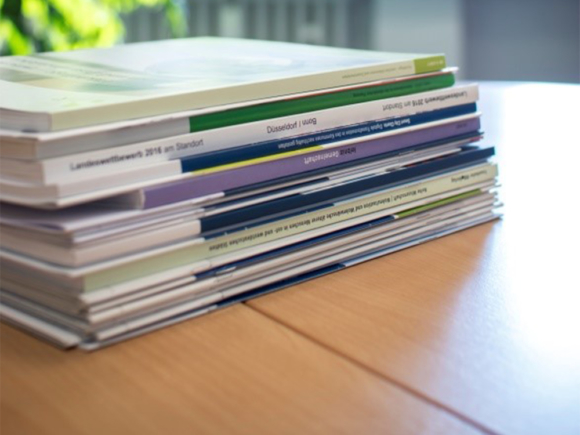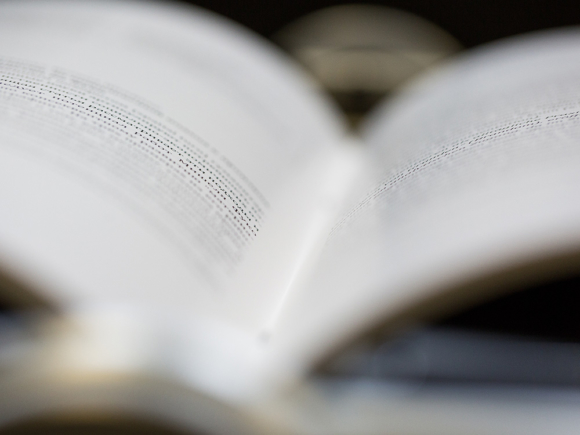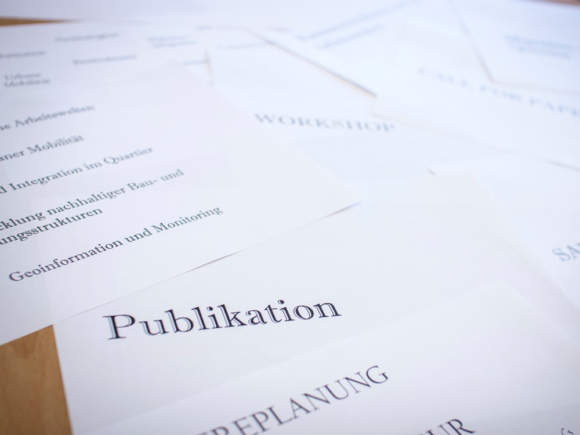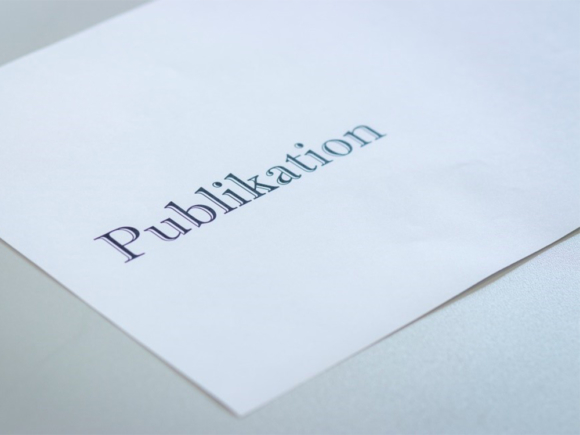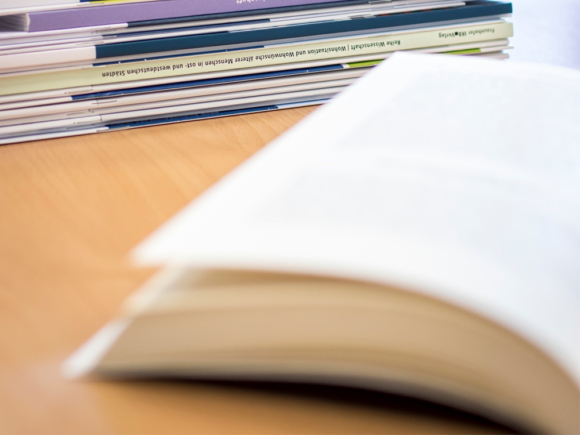Publications
Entrepreneurs’ ‘Triadic Spatial Paradox’: theorising the hybrid home‑based business workspace experience
ILS researcher Cornelia Tippel and her colleagues have published an article in the International Small Business Journal: Researching Entrepreneurship. The article examines the significance of space in entrepreneurship and develops the conceptual model of the ‘Triadic Spatial Paradox’ based on the experiences of entrepreneurs operating home-based businesses (HBBs). It shows how entrepreneurs personally relate to and make sense of their dynamic hybrid home/workspaces and how they articulate the space-related paradoxes within their businesses. https://doi.org/10.1177/02662426251410801. Further current selected papers can be found here.
Belief-driven and socio-spatially effective? Transition pathways from car-oriented to car-reduced planning on the neighborhood scale
ILS-Wissenschaftlerin Annika Schröder hat gemeinsam mit Sina Steele von der Goethe-Universität Frankfurt einen Artikel in der Fachzeitschrift International Journal of Sustainable Transportation veröffentlicht. Die Entwicklung von Mobilitätskonzepten für Neubauquartiere trifft auf Strukturen und Denkmuster, die auf das Auto ausgerichtet sind. Diese stellen innovative Planungsstrategien vor Herausforderungen. Am Beispiel von Quartiersentwicklungen in Darmstadt, Bielefeld und Köln gehen die Autorinnen dem Transformationsprozess von autoorientierter zu autoreduzierter Planung auf den Grund. Basierend auf einem komplexen Zusammenspiel von Überzeugungsmustern und sozio-räumlichen Faktoren (materiell, institutionell, kulturell) leiten sie Varianten eines Planungswandels von autoorientiert zu autoreduziert ab. Sie zeigen zudem, dass es in der Praxis erfolgversprechend scheint, Planungsvisionen kontextspezifisch zu begründen, Experimentieren und Institutionalisieren zu kombinieren und Planungserfahrungen zu verbreiten. https://doi.org/10.1080/15568318.2025.2598440. Weitere aktuelle Fachpublikationen finden Sie hier.
Segregation in primary schools and the production of inequality
ILS researcher Isabel Ramos Lobato, together with other colleagues, has published an article in the journal sub/urban. This article examines the causes of primary school segregation in a large city in North Rhine-Westphalia. Segregation in primary schools and the production of inequality. In many German cities, there is a serious degree of segregation at primary school level. This is problematic since primary schools are a key determinant of social mobility and social cohesion. Based on a combination of quantitative and qualitative data, our findings show how spatial, individual, and institutional factors, as well as their interactions, contribute to the emergence and reinforcement of school segregation. This illustrates the complexity of segregation processes within the education system. A better understanding of these interactions is essential not only from a scientific perspective, but also to enable the implementation of targeted measures to alleviate school segregation. https://doi.org/10.36900/suburban.v13i2/3.1025. Further current selected papers can be found here.
Energy renovation challenges in dense low-income neighbourhoods with fragmented ownership: insights from Dortmund–Nordstadt, Germany
ILS researcher Stefano Cozzolino has published an article in the journal Town Planning Review together with Lisa Haag. Policy documents increasingly identify energy-efficient housing renovation as a global priority that requires implementation at the local level. This article examines the challenges of implementing such energy-efficient renovation strategies in dense, low-income neighbourhoods characterised by a high degree of ownership fragmentation. Focusing on Dortmund–Nordstadt, Germany, the study combines spatial data analysis, policy review, and in-depth engagement with private owners and municipal stakeholders. It explores the specific perspectives of private actors while drawing broader implications for urban planning. The findings highlight the importance of context-sensitive approaches and point to the potential of neighbourhood-specific, low-threshold engagement formats to facilitate action. https://doi.org/10.3828/tpr.2025.37. Further current selected papers can be found here.
The impact of migration background and ethnicity on car, bus and bicycle use in England
People with a migration background and/or who identify themselves with an ethnic group tend to have different travel behaviour in comparison to the population majority. A better understanding of this nexus is needed, yet there is a lack of quantitative studies on this topic in Europe and in the United Kingdom. ILS researcher Janina Welsch and Giulio Mattioli from TU Dortmund fill this gap by analysing data from the 2018–2019 wave of the UK House-hold Longitudinal Survey. With ordinal regression models, they investigate the impact of migration generation and ethnicity on the frequency of car, bus, and bicycle use. The results show that travel behaviour varies substantially depending on migration background and ethnicity, with the latter playing a larger role. More: https://doi.org/10.1007/s11116-025-10696-5. Further current selected papers can be found here.
„New“ arrival spaces between inclusion and exclusion. A literature anal-ysis of spatial migration patterns in Europe
ILS researchers Hannah Brill, Isabel Ramos Lobato, and Nils Hans, together with Miriam Neßler and Heike Hanhörster from TU Berlin, have published an article in the journal sub/urban. This article analyzes the spatial effects of the increasing diversification of migration processes. The focus is on newly forming arrival areas in Europe beyond „traditional“ urban migration centers. Based on a systematic literature review, five central dimensions can be identified that shape the local arrival conditions for newcomers. The article argues for a differentiated view of local arrival contexts in the sense of the „local turn“ in migration research, which takes into account the complex interactions between local and supra-local conditions. https://doi.org/10.36900/suburban.v13i2/3.1027. Further current selected papers can be found here.
Supporting the transformation of urban food systems: The food network of the city of Dortmund.
ILS researchers Melissa Leimkühler, Kathrin Specht, Chiara Iodice, and Barbara Schröter have published an article in the journal Urban Agriculture & Regional Food Systems. The article examines how Dortmund’s food system can be made sustainable. It focuses on the key actors, their roles and relationships, and the obstacles to transformation. The analysis shows that close cooperation between civil society and local authorities is crucial and that the Dortmund Food Policy Council plays a central networking role. Successful further development requires, above all, better coordination, financing, political participation, visibility, and networking. The results provide concrete impetus for strengthening urban food systems. https://doi.org/10.1002/uar2.70029. Further current selected papers can be found here.
Kreislaufwirtschaft im Verbund – Synergien zwischen Abwasser- und Lebensmittelwirtschaft
ILS scientists Thomas Weith, Ann-Kristin Koch, and Melissa Leimkühler, together with Julian Gatawis, have published an article in the journal „Geographische Rundschau“. The article examines how urban circular economies can relieve pressure on agricultural systems: climate change, resource scarcity, and land use pressure are increasing the need for sustainable solutions. Wastewater treatment plants offer great potential as a source of nutrients, but existing processes usually focus only on phosphorus. Using NEWtrient® scenarios, the article shows how new concepts can better integrate wastewater treatment plants into nutrient supply in the future. Further current selected papers can be found here.
The JUST GROW framework: conceptualizing how city regions can govern urban agriculture for equity and sustainability
ILS scientists Ann-Kristin Koch, Barbara Schröter and Kathrin Specht, together with other colleagues from the JUST GROW project, have published an article in the journal Frontiers in Sustainable Food Systems. The article deals with a new framework for establishing justice-oriented pathways to govern and catalyze the sustainable transformation of city region food systems (CRFS). Therefore, the JUST GROW framework incorporates three interlinked principles of justice into a comprehensive governance process of collective knowing, inclusive deliberation, and intentional action and calls for processes of open and inclusive co-creation with community stakeholders, decision-makers, and researchers. https://doi.org/10.3389/fsufs.2025.1653448. Further current selected papers can be found here.
Gold mining in the Colombian Amazon: empirical insights on the links between sustainability, equity, and power
ILS researcher Barbara Schröter and her colleagues have published an article in the journal Sustainability Science. The article examines how different ideas about “sustainable” gold mining in the Colombian Amazon region are causing tensions between companies, small-scale miners, indigenous communities, and government actors. The study shows that sustainable solutions are only possible if power relations and issues of justice are taken into account and diverse perspectives on sustainability are included in decision-making processes. https://doi.org/10.1007/s11625-025-01749-w. Further current selected papers can be found here.

